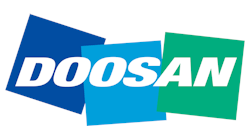In the last issue we announced our intention to spotlight innovative training programs that might provide good models for the construction industry. We indicated there was a need for this based on the generally dismal and uninspiring status quo of training in the industry, where training is often an afterthought and the first to go when resources are stretched.
We also suggested that contractors might benefit from focusing more on the employee development aspects of training, providing opportunities to expand skills and develop initiative, thereby improving job satisfaction and increasing the employee’s value to the organization. Finally, we concluded that competent instructors, the opportunity for hands-on experience, and substantive instructor interaction can help employees progress and grow in their jobs as they develop into bankable corporate assets.
Having made these points, we profiled the New Hampshire Grade Forman’s Boot Camp, operated by the Construction Education Academy (CEA), the brainchild of a software dealer and an engineer, to fill in the training gap among small and mid-sized contractors who want to learn the ins-and-outs of high-tech layout and surveying equipment and software. We reported that one of the most important benefits Boot Camp graduates identified was the opportunity to interact and share information and learn from their peers. In a word, collaboration.
In addition to the opportunity to swap information and experience, programs like CEA’s Boot Camp take the T out of training by offering hands-on experience that helps participants understand how to apply what they learned once they got back to their jobs. Likewise, employees who have the opportunity to attend manufacturer-sponsored training programs talk about the value of information exchange. The training world has a word for this: cross-fertilization. What makes this difficult to achieve in construction is the industry’s tendency toward isolation, where individual companies function as islands unto themselves. Competition tends to be the name of the game, especially when the economy turns sour, as well as the inclination to guard one’s operational secrets instead of sharing for the benefit of employees and the industry at large.
Construction has typically functioned free-form, with individual contractors acting as free agents, and generally without standards or certifications for the specialized skills the industry depends on. Where other industries have embraced standardization and the continued development of job skills, construction has in the main depended on individuals developing through their own efforts. This being said, a program we recently discovered, developed by a consortium of water and wastewater utilities in the San Francisco Bay area, demonstrates both the need for and the value of sharing.
Given the critical and highly visible nature of its operations, the water industry has invested much time and treasure in training and education. And while much of this is necessary because of the direct relation to public health and safety, some of its strategies could provide food for thought for other industries that rely on very specialized skilled sets.
The BAYWORK Regional Collaboration on Workforce Reliability is a consortium of San Francisco Bay Area water and wastewater utilities. Its aim is to develop and ensure the reliable work force that utilities need to serve customers in an environmentally responsible manner, taking into account the rapid deployment of technology, the tight budgets, and the ever-expanding government regulations. Its activities, programs, and events are open to employees of all Bay Area water industry utilities.
In the words of BAYWORK’s chair, Cheryl Davis, a primary goal is to provide utility staffs the information they need “to produce quality work.” Quality work: Those are two words we don’t often hear applied to training, where the goal is more often described as providing employees with the information they need to do their job. But there’s a world of difference between an attitude that’s focused on getting the job done and one that aims to do it at a routinely high level of performance.
BAYWORK’s dense, resource-rich website offers career advice for people seeking to enter the industry, a job and internship posting function that can be used to advertise job openings, a training opportunity map that provides information on Bay Area colleges, universities, unions, and vocational programs, and a clearing house for information on programs that strengthen workforce reliability and the effective use of technology to teach staff preparedness. The key to making this happen? You guessed it. Collaboration: working together for a larger goal and common purpose
To lay the foundation for its training programs, BAYWORK first defined eight “mission critical” jobs that water and wastewater facilities depend on. Next, it adopted the assumption that all these utilities face similar work-force reliability challenges and would profit from sharing what they’ve learned. Third, it make a commitment to design programs for modifying work processes that optimize the use of the staff utilities already have in place.
The acknowledgment that people currently working in the industry have knowledge, experience, and expertise worthy of sharing, not only with their coworkers but also with people outside their immediate organization, was fundamental. The challenge was to pass it on. BAYWORK recognized that it was critical to understand how the audiences it intended to reach preferred to learn so that it could design programs they could relate to. It was not surprising that water/wastewater operators, like all people who to some degree or another work with their hands, preferred in-person and up-close learning experience rather than a classroom setting. The question was how to make this kind of collaborative experience happen.
First up was researching innovative projects in the Bay Area water industry that related to the mission-critical jobs already identified.
Once this information was collected and organized, the next step was to figure out how this information could be communicated. The projects BAYWORKS was interested in featuring were scattered around the Bay Area, as were the operators they were trying to teach. For operators for utilities B, C, or D to learn from what utility A was doing, they had to visit the facility, to see for themselves what was going on, ask questions, and solicit advice. The most challenging problem, then, turned out to be logistics: getting participants from place to place in an efficient and timely manner with minimal disruption to the projects they were visiting and the jobs they had left for the day. Out of this confluence of factors, the BAYWORKS Workshop on Wheels was born.
Transportation was critical, but given traffic and other variables, it was neither efficient nor manageable to have participants carpooling to the project sties. The solution was as practical as it was obvious: a bus. A modern, comfortable motor coach to drive participants from one project to another. In addition to efficient and hassle-free transportation, the bus provided additional time between sites for interaction and information sharing. The tours offered real information, the bus ride offered opportunities for further discussion and networking. Participants were encouraged to identify facilities they would like to revisit for further information and to recommend perspective tour guides and facilities. The first bus trip was such a success, BAYWORK scheduled two more and is in the process of developing a report on how things went and what participants would like to see next.




